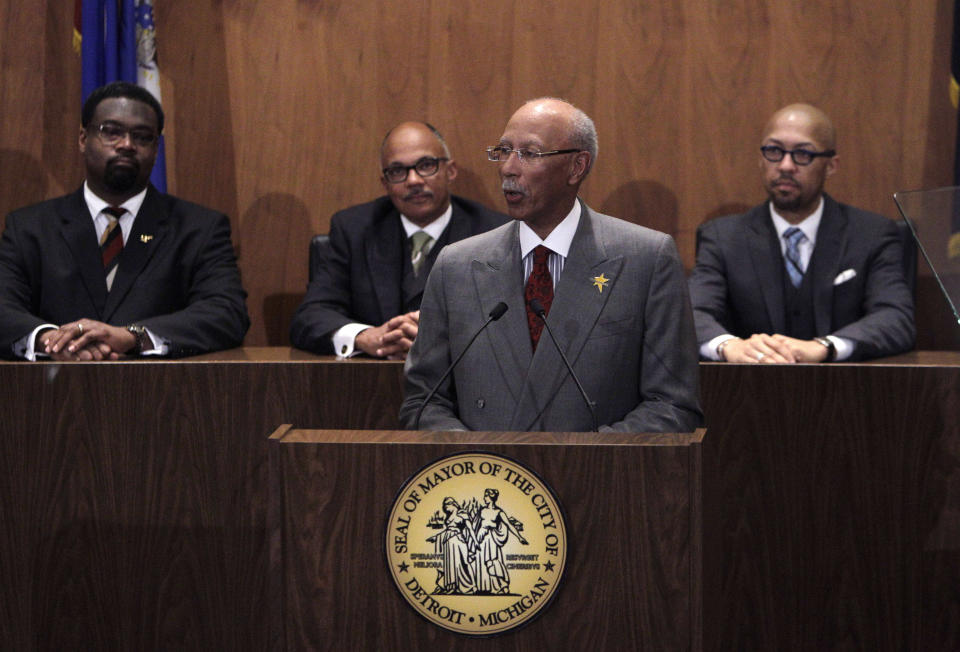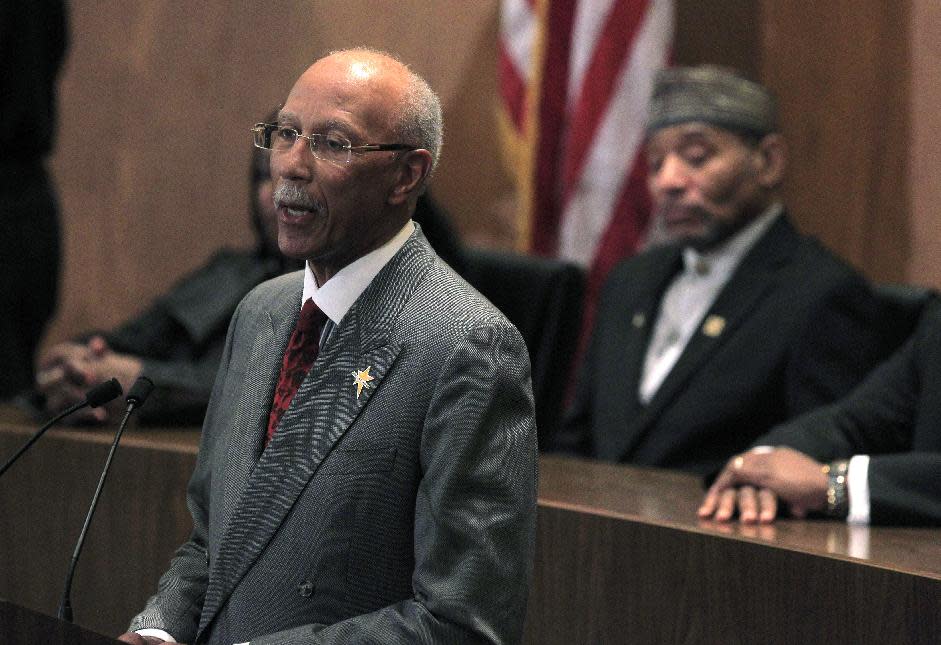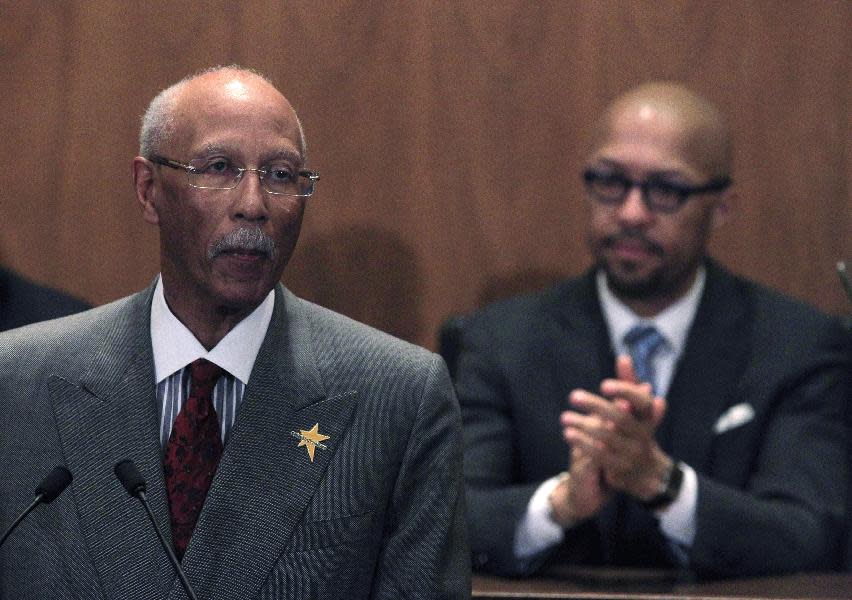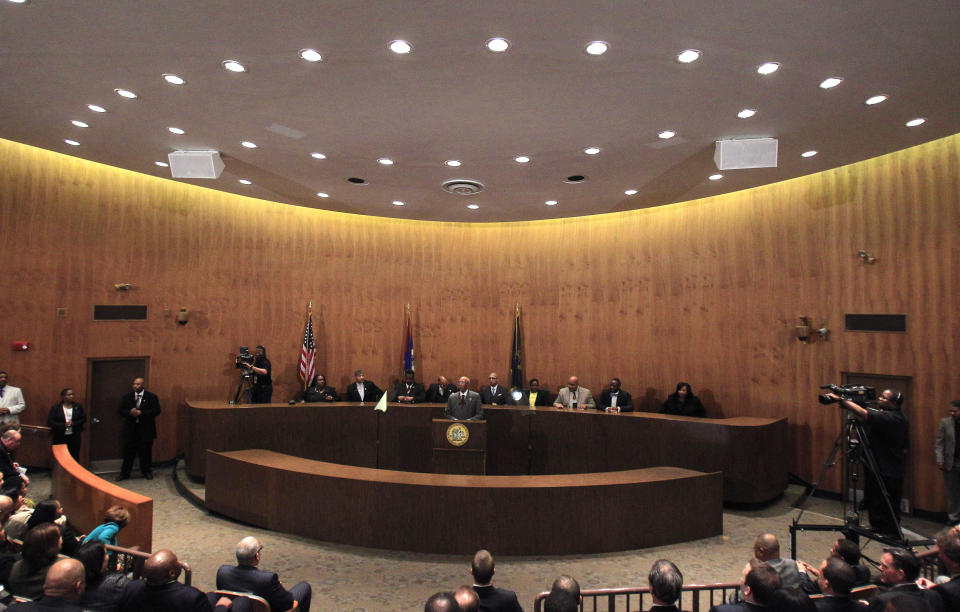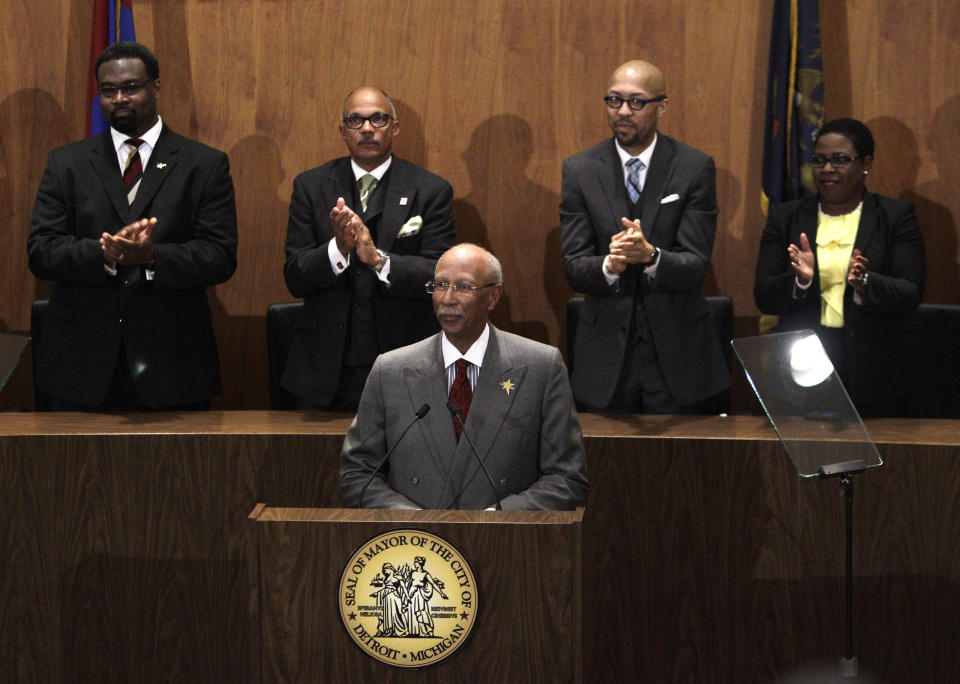Mayor Bing: City, state must act to save Detroit
DETROIT (AP) — The future of cash-starved Detroit still could end up in the state's hands, but it may not be through a financial overseer appointed by the governor.
In his third State of the City speech since being elected mayor, Dave Bing told residents that he and Republican Gov. Rick Snyder have similar opinions on Detroit going into state receivership.
"Gov. Snyder and I both agree that an emergency manager is not the best approach," Bing said Wednesday in the nearly 30-minute address. "We're working hard toward a solution to resolve our city's financial challenges."
A preliminary review shows Detroit has a budget deficit of about $200 million. A 10-person review team currently is poring over the city's books and operations. They are expected within weeks to report their findings to Snyder as to whether a financial emergency exists in Detroit.
Under Public Act 4 — signed last year by Snyder — an emergency manager then could be assigned. That person would have the clout to rip up unwieldy labor contracts and dismiss elected officials.
The act also allows for the city and state to instead enter into a consent agreement that would include provisions from the city showing how it will get out of its fiscal muck.
Snyder said Wednesday in Flint that he still prefers not to place and emergency manager in Detroit. But he also said the "clock is ticking" and hopes time doesn't run out to reach a possible consent agreement.
"I'm not personally negotiating a consent agreement," Snyder said. "What I'm encouraging is a consent agreement. That's where I've been consistent from Day One on this. I don't want an emergency manager in Detroit; I would like to see a consent agreement."
Whatever the state does, Detroit needs to retain responsibility for itself, Bing said.
"Regardless of the emergency manager law, Detroit must preserve its financial integrity and maintain control of its future," he said.
But Bing also added that the city must have help from Lansing.
"We need financial and operational support. We need changes in legislation to support our overall plan. In other words, we need tangible support," Bing said.
Last year, Bing announced 1,000 layoffs designed to save Detroit $14 million this year and $45 million in the 2013 fiscal year.
He's also negotiated tentative wage reductions with city unions that could save an additional $13 million this year and double that in 2013. Concessions to health benefits and work rules also were reached, but nothing has yet been ratified by workers.
"We may be out of cash in 60 days," Councilman Andre Spivey said after Bing's address. With the council starting budget deliberations in a month, "we're going to have to decide which services are we going to maintain, which services will we cut? If the unions don't come to the table and ratify their agreements, what happens next?"
Under Public Act 4, a consent agreement "may provide for remedial measures" necessary to help a city out of its financial woes. That could include continuing operations or recovery plans and using state financial management and technical assistance.
"I'm not in favor of an emergency manager, but obviously if I had to choose one I would choose a consent agreement," Spivey added.
Any such agreement would be negotiated between Bing and the state. It also would have to be approved by a City Council resolution.
"It is going to take all of us to pull this together," Councilman James Tate said. "It would be foolish to discount a consent agreement if in fact it does provide us with an opportunity to stay out of receivership. It also puts us in a situation where we have a plan moving forward."
Outside of Detroit's fiscal peril, Bing also is faced with the city's high crime rate and far too many blighted neighborhoods. He re-emphasized Wednesday that federal authorities have said they will help city police fight crime on Detroit's east side, which has seen an increase in violence.
Bing also said a new initiative will allow homeowners in some parts of the city to buy vacant lots adjacent to their properties for $200. The city also is on track to complete a promised demolition of 10,000 vacant houses before the end of his term. So far, about 6,000 empty homes have been torn down, Bing said.
Recent crime victims include a 6-year-old boy who was critically wounded last month during an attempted carjacking on the east side. That shooting followed the Jan. 31 slaying of a 12-year-old girl and Feb. 20 shooting death of a 9-month-old boy. They were killed when shots were fired into their west side homes.
"Unfortunately, the sad but real fact is that when violence affects the innocent lives of our children and our seniors, it's gone too far," Bing said. "No Detroiter should have to live in fear. I am outraged by the insidious violence in our neighborhoods and in our city."
